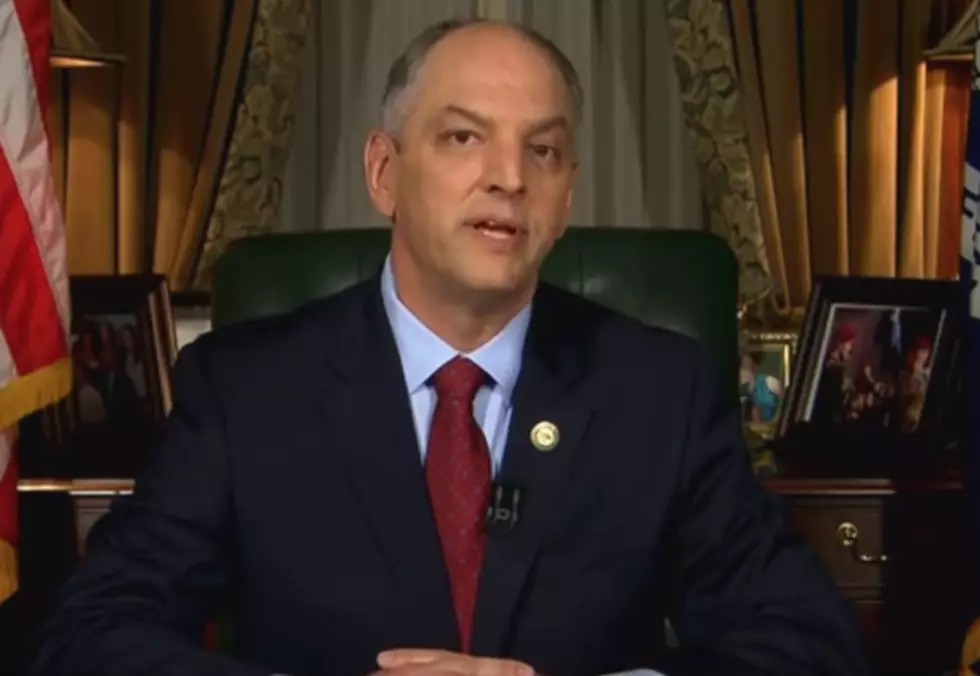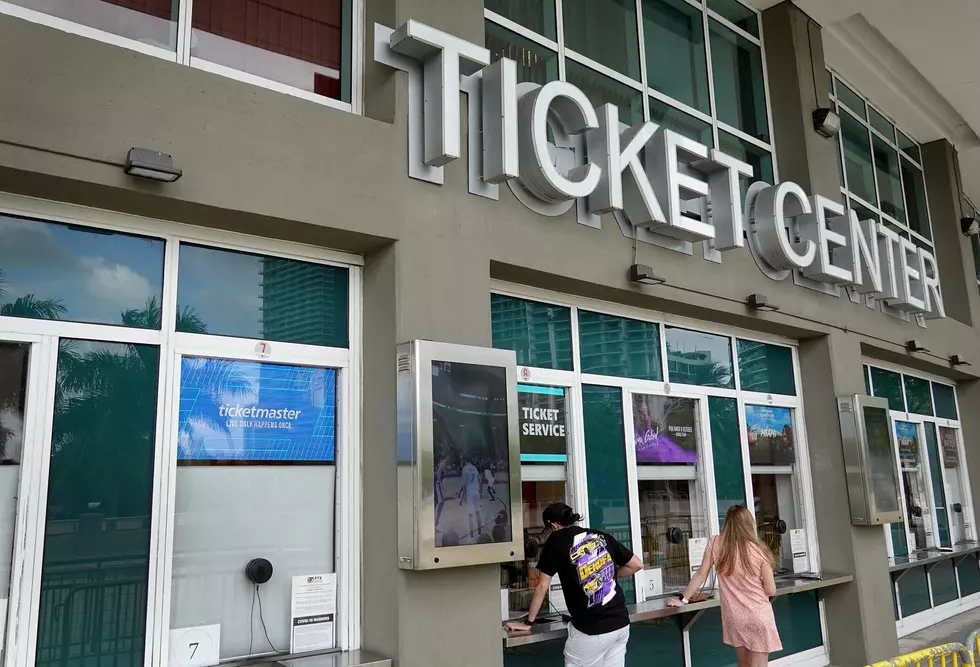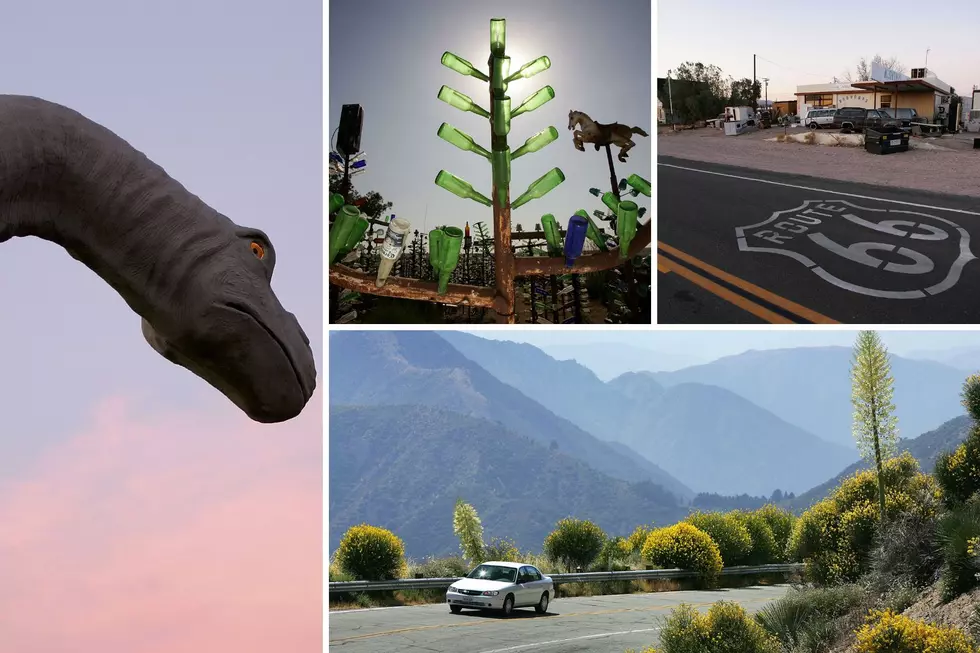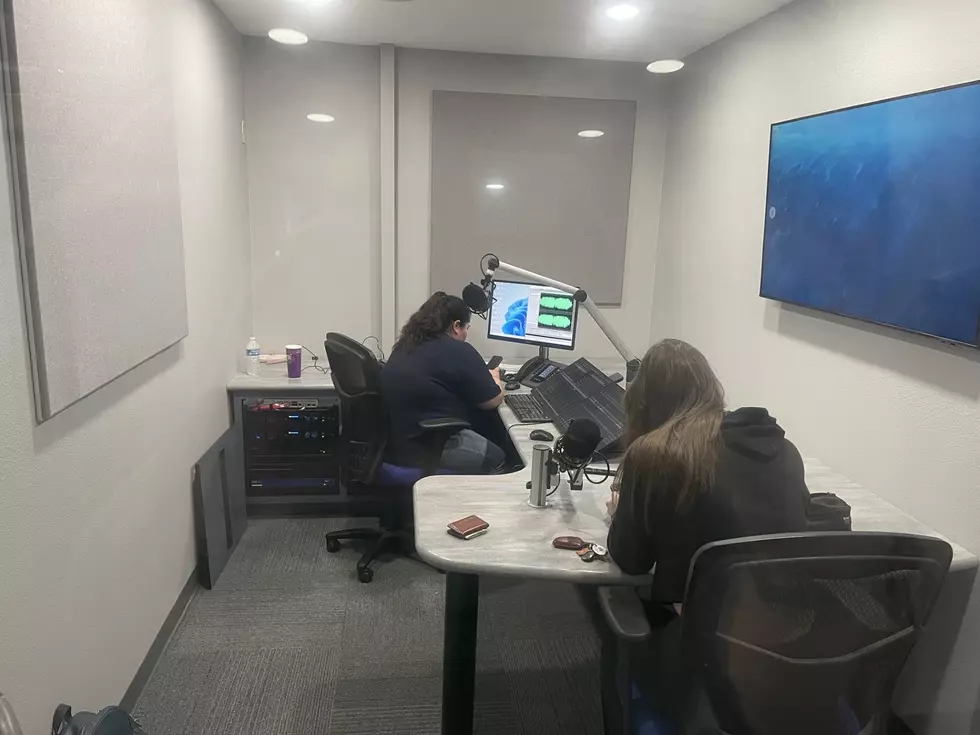
Governor Edwards Addresses Legislature, Urges Cooperation
Just three days after describing the state's financial situation in the most dire terms, Governor John Bel Edwards spoke to a special session of the Louisiana legislature Sunday afternoon, urging bipartisan cooperation in dealing with the state's nearly one billion dollar deficit.
Here is the text of the Governor's remarks:
"Speaker Barras, President Alario, Members of the Legislature, Family and Friends, My Fellow Louisianans:
I stand before you today aware of the magnitude of the challenge that has brought us together. Today, we face the largest budget deficit in our state’s history. Our work will not be easy, but I am optimistic that our love of this state and our responsibility to our citizens will anchor our actions.
The last time I stood here, I said that I hoped, and expected, to be back in this chamber so that we could work together to fix our state’s problems in a lasting and bipartisan way – a way that is worthy of the people of Louisiana.
Well, here we are – together in this chamber with a common mission and critical purpose.
We have a $940 million budget deficit that must be corrected by June 30th. And next year, we are facing a $2 billion budget deficit.
It’s time for fiscal responsibility in this state. No more smoke and no more mirrors.
I am asking everyone to shed partisan labels and blinders and work with me to repair the state we all love. I will do the same.
I did not call you here to continue putting off the tough decisions. We’ve done that for eight years. I have called you here because our present budget crisis requires that we take immediate and decisive action.
As I see it - how you respond to this call will determine the course of Louisiana’s future.
As I said the last time I stood here, real leadership is required. Leadership that will be present, not absent, leadership that will be involved, not detached.
And I promise you this – I will roll up my sleeves to work with you –not from another state and not while pursuing any other position.
I urge you to remember that behind every budget number are real Louisiana citizens, families, students, and kids like Braden Wilson, who I talked about Thursday night.
Braden suffers from Leigh’s Disease and has been bedridden since birth. Braden’s mom, Kodi, is with us today. Kodi, please stand up. I talk about Braden because his family is one of thousands at risk for losing the NOW waiver they rely on to help pay for care.
The people of this state are demanding us to do what is right.
Now, I am mindful as I address this chamber that we will not agree on every solution. There are some that will tell you we have a spending problem. That simply “tightening our belts” will eliminate this historic deficit, but let me be clear – we can’t just cut our way out of this crisis.
It simply isn’t possible to always do more with less, otherwise, one day, you could do everything with nothing. The world just doesn’t work that way.
Here are the facts:
While my predecessor inherited a $1 billion dollar surplus when he became Governor, I’ve been left with almost a $1 billion deficit that we must resolve in the next 4 months and a $2 billion deficit next fiscal year. Again, the largest budget deficit in the history of our state.
We are $570 million short of the revenue we expected to bring in this year, due in part, to the drop in oil prices and a slowdown in sales and corporate tax collections. In fact, we're paying out more in credits and refunds to corporations this year than we are collecting from them in taxes. For example, the amount of the industrial tax exemption is now greater than the homestead exemption we give to families in Louisiana. We’ve lost our way. We’ve got to return to a sensible, balanced approach.
Additionally, we have $370 million in commitments we made that we don’t have the money to pay for. The current budget failed to account for how many people would need access to public health care, how many students would qualify for TOPS, how many people would enroll in our public schools, and how many state inmates would be housed by our sheriffs, among other failures.
As you know, we’ve had budget deficits in Louisiana for eight straight years, and rather than make the structural changes we needed, instead one-time funds were increasingly used to patch budget shortfalls. Today, all of that money is gone. Make believe efficiencies, more and more tax giveaways, and privatization schemes that actually increased costs all further exacerbated the problem. Blunders of the past have led us to this day of reckoning. Now is the time to make the more difficult right decisions instead of the easier wrong ones that appease an out-of-state special interest or serve a political agenda.
To do this, we need a balanced approach of strategic cuts and new revenue. Focusing on one without the other would be irresponsible, especially when the problem is so massive.
'I want to stress to you how important it is that every moment of this three week session be spent fixing this historic crisis. That small window of time is all we’ve got to get it right. If left unresolved, we will face unimaginable cuts to vital state services.
Before I outline what’s at stake, I want to quiet those critics who say I am not proposing spending cuts. The plan I am presenting to you includes at least $160 million in painful cuts. I have met my constitutional obligation with regard to cuts with an executive order signed earlier today, and I have further asked the Joint Legislative Committee on the Budget to make additional reductions. Now it’s your turn. You have the ability to approve an additional roughly $30 million in cuts that I have proposed. And you should be mindful that, whatever supplemental appropriations we have, but we can’t afford, will be cut as well.
In fact, more than half of my proposal to fill our current fiscal year deficit does not require raising additional revenue. So, I ask you, when someone comes to you and says we can cut our way out of this crisis – that we have a spending problem and not a revenue problem – that there are painless options that solve the problem and they point to studies that are 15 and 20 years old – you should demand specifics because here is what is at stake.
HEALTHCARE
The Department of Health and Hospitals is already facing severe cuts because of how massive the budget problems have become. However, without generating more revenue, those cuts will be catastrophic.
Safety net hospitals across the state will close – leaving communities without health care options, not just for the poor, but for everyone.
Vital health care services would be gone. While there are services we are constitutionally required to offer, the “optional” services at risk of being cut are really not optional to the many children, elderly, and disabled citizens who depend on them to survive.
The New Opportunity Waiver program, which provides much-needed help for families with developmental disabilities like Kodi Wilson’s is also under consideration for painful cuts and could be offered to far fewer people.
Funding for services such as hospice care and end-stage kidney dialysis would also be impacted.
When it comes to life and death issues – our discussion should be clear. We should fight like hell to protect those services for our citizens.
On the positive side, we will lower our health care costs by expanding the Medicaid program so working families can have access to health care.
Folks like Butch and Dawn Schouest (pronounced Sh-west), from Cypremort Point are also here with us today. Butch and his family have made a living as professional shrimpers for generations. After the BP oil spill devastated their business, they could no longer afford their health insurance.
However, when they applied for Medicaid, they were told they didn’t qualify because Louisiana rejected the Medicaid Expansion which would have covered citizens like him. Butch and Dawn aren’t asking for a hand out. They’re asking for one of life’s most basic necessities – decent health care – health care that our federal tax dollars are already paying for.
This is an opportunity to dramatically improve the health of our working poor, while saving tax dollars, creating jobs, and investing in our workforce. Today, we pay 38 percent of the cost of providing care to the uninsured after they already are sick, but with expansion, we will never have to pay for more than 10 percent of the cost of helping the same patients see their primary care doctor and get preventive care. It is a win-win for health care and the budget.
That said – the cost of doing nothing is too high. Payments we receive from the federal government to cover the costs that hospitals incur for providing health care services to the uninsured will soon dry up. Those DSH dollars have to be replaced with 100 percent State General Fund. Without these payments – hospitals will begin closing. Alabama and Georgia are two states already seeing this in rural areas.
EDUCATION
Just as importantly, higher education is at risk for devastating cuts.
Because the Revenue Estimating Conference identified an even greater deficit just last week, higher education will need to cut $42 million, which, in itself, is an historic cut to make this late in the fiscal year. On top of that, the TOPS scholarship fund is operating with a $28 million shortfall. A cost that is being absorbed by our already cash-strapped universities.
However, without additional revenue, higher education will be crushed with more than $200 million in cuts over the next 4 months. And that comes on the heels of the largest disinvestment in higher education in the nation over the last eight years.
If these cuts are allowed to proceed, universities and community and technical colleges will not be able to make payroll. Universities have informed me that campuses will begin closing as soon as May 1st and their accreditation will be threatened.
If you have any doubt about the impact of higher education research facilities, look no further than the LSU physicists who just grabbed international headlines at the Laser Interferometer Gravitational-Wave Observatory, or LIGO, in Livingston Parish. LSU researchers at LIGO recorded, for the first time ever, the sound of two black holes colliding a billion light years away – demonstrating Einstein’s theory of relativity and proving black holes exist. I’m honored to say that the head of the LIGO observatory, LSU Physics Professor Joe Giaime (gee-YAH-mee), and LSU physics professor Gabriela Gonzalez, who leads the 15-nation LIGO Science Collaboration, are here with us today and seated in the balcony. Please stand and be recognized.
But what does this mean for our students? If our institutions are forced close their doors, students will not be able to complete their courses for the semester, leaving them with a grade of incomplete.
This is what the leaders of our higher education institutions are telling me will happen if we do not act, and I refuse to fail our children in that way.
While students won’t be billed for the shortage of TOPS funds this semester, the future of TOPS, a program that I will fight tooth and nail to protect, is at risk, and therefore, so is the future for our children.
So is the dream of students like Kyle Ypya (Yip-yah) whose family we welcome here this afternoon. Kyle, please stand up. Kyle is a high school senior at C.E. Byrd in Shreveport with boundless dreams and an incredible work ethic. Between playing football and maintaining a 4.5 GPA, Kyle eagerly awaits his freshman year at Louisiana Tech next fall to study chemical engineering. The last thing on his mind should be why the tuition award he worked so hard for might slip away because we can’t summon the courage to fix the problem.
It is unacceptable that parents like Kyle’s who have encouraged their kids to work hard and achieve their goals, to be suddenly struck with the paralyzing fear of figuring out how to replace a scholarship and pay for tuition for their child.
We need to honor Kyle’s hard work with hard work of our own.
So, I have put forth a plan that stabilizes our budget, and protects people like Kyle, and Braden Wilson, and the Schouest family. This plan doesn’t penalize one group or another, but simply asks us all to share in this sacrifice of stabilizing our budget, so that all of us can share in the prosperity, too, that will follow.
BUDGET PLAN
As I mentioned before, my plan includes significant spending cuts to the tune of more than $160 million, in addition to a hiring freeze across state government and a reduction in state contracts.
I also propose to use $128 million from the rainy day fund and $200 million in non-coastal BP payments to the state to reduce the current year deficit.
My proposals include further reducing tax credits, suspending corporate tax deductions, and adding one penny of sales tax to our state’s four cent sales tax. I am proposing this penny as a bridge that will give us time to stabilize and restructure our state’s tax code. When that restructuring is complete, this penny sales tax will be removed.
As a part of this restructuring, I am also proposing an increase in alcohol and cigarette taxes.
I’ve heard the critics say I’ve changed my tune on raising taxes. My response is this – in a crisis when the facts change as dramatically as the facts surrounding our budget have, so must the solutions change. That is called responsible leadership. Remember, no one knew we had a budget deficit at all until November 16, 2015 – five days before I was elected. Since then, the number has grown from $487 million to a staggering $940 million today. Further, the $487 million was supposedly fixed in November through some “comprehensive solutions,” as my predecessor said, but wasn’t.
Yesterday, Commissioner Jay Dardenne presented an honest and balanced budget for next year, with only the revenue recognized by the Revenue Estimating Conference on Wednesday. It shows that the state is $2 billion short in State General Funds needed to simply provide the same level of basic and essential services. I want to reiterate – this is not the budget I want to sign into law, and this is not the budget that honors our most sacred obligations to the people of Louisiana. Now is the time – the only time – to fix it.
This is not the challenge I imagined I would face one month after becoming your governor, but this is the crisis before us and we must solve it.
As President Eisenhower, another West Point grad, said, “In preparing for battle, I have always found that plans are useless, but planning is indispensable.”
So, if you insist on saying that I never said I would raise taxes – that I’m going back on my word – that’s fine. Say it. Get it out of your system, and then please come back here ready to work with me to do the job we were all hired to do.
Now, I know there are different opinions on how to achieve these goals. That’s why I intentionally made a broad call for this special session. If you want to cut spending further than I have proposed, show me where and who is impacted. That is the first thing in the call. If you believe, as I do, that we should reduce contracts, that, too, is in the call. If you believe as I do that we should reduce statutory dedications, it’s in the call. I don’t claim to have the market cornered on good ideas to fix this budget, so please bring forth constructive ideas, not simple talking points.
I have gone above and beyond to make this an inclusive process. Let’s keep these conversations going. Don’t simply back into your corners and dig in your heels. That is the best way to ensure dysfunction and failure.
But just imagine the possibilities if we can walk away from this special session dispelling the notion that we are becoming just like Washington, DC.
Let’s write a new headline – that we were able to work together to solve the greatest budget challenge ever.
Let’s ignore the self-serving voices of candidates running for office, after all, that’s what got us in this mess. Instead, let’s amplify the voices of the solution-driven leaders here who have the courage to actually solve problems before us.
As Louisianans, we’ve weathered many storms together. This one will be no exception. As I said Thursday night, our best days are ahead.
And just as we open this session in prayer, I am asking that all of us pray daily for our state and our leaders – for you and for me.
God bless us all as we begin this critical work. God bless the great State of Louisiana, and God bless the United States of America.
Thank you."
More From News Radio 710 KEEL









